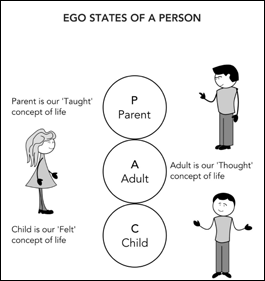
A Fairy Tale
Once upon a time, there was a young girl who, wide-eyed and full of dreams, left her hometown by the coast and followed her knight in shining armor to the city.
Their wedding was a spectacular affair befitting a princess and her prince, and they came to live in a castle overlooking the sea.
Years passed, and it seemed that they had everything they could want, including a lavish lifestyle with all the trimmings. They were a young family of standing in their community, with four beautiful children.
But, fourteen years later, this young girl, now grown and much wiser, looked for more from her relationship than it seemed her prince was able to give.
Through much turmoil and heartache, she ended the relationship and created a life as a single mom...
Read More
















 Many years ago, people believed that a healthy relationship looked like this: two complementary halves making a whole. Now we understand that a relationship that looks like this is far from complementary and where generally one person in the couple dominates the other.
Many years ago, people believed that a healthy relationship looked like this: two complementary halves making a whole. Now we understand that a relationship that looks like this is far from complementary and where generally one person in the couple dominates the other.